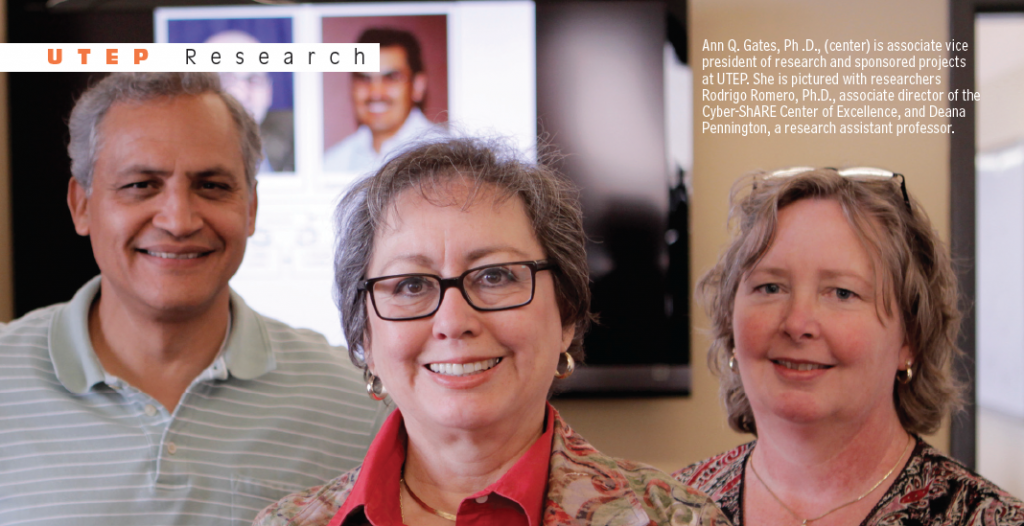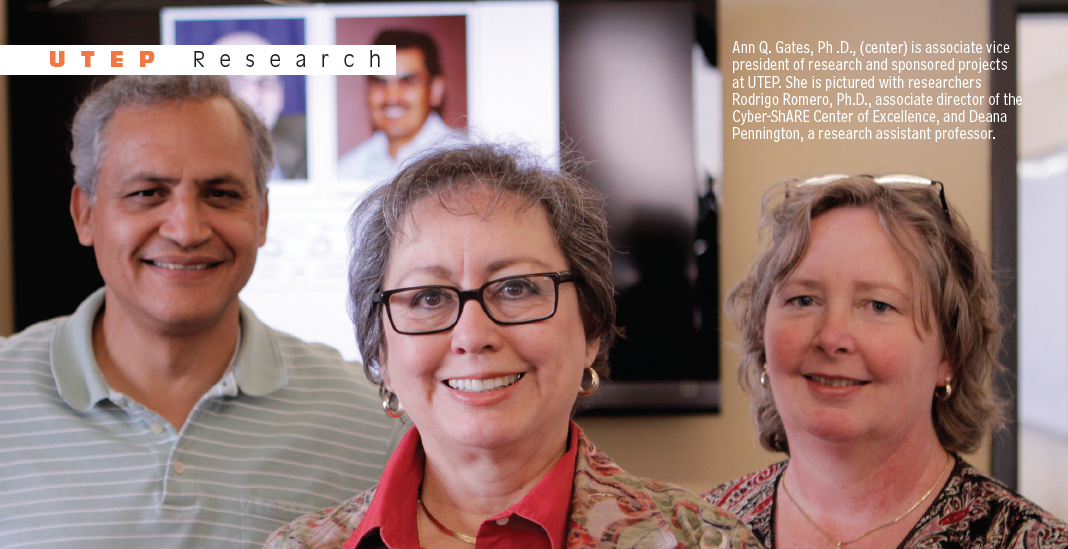When Edward Castañeda, Ph.D., professor and chair of UTEP’s Department of Psychology, submitted a grant proposal to the National Institute on Drug Abuse to fund the University’s Vulnerability Issues in Drug Abuse (VIDA) research training program, he needed help assembling a top-notch team of researchers from across disciplines who would contribute their expertise to the program’s success.
Castañeda enlisted the help of the Proposal Development Team, or DevT, in the University’s Office of Research and Sponsored Projects (ORSP). The team brought together 11 UTEP professors from the colleges of science, health sciences and liberal arts to collaborate in activities that integrate the neuroscience and socio-cultural dimensions of drug use among vulnerable Hispanics.
“The Affinity Research Group model specializes in getting people to see outside the box,” Castañeda said. “They have this whole approach to breaking down those barriers and coming together with a common definition that transcends disciplines and unites people in a common vision.”

president of research and sponsored projects
at UTEP. She is pictured with researchers
Rodrigo Romero, Ph.D., associate director of the
Cyber-ShARE Center of Excellence, and Deana
Pennington, a research assistant professor.
Castañeda is one of about 250 faculty members that the DevT has assisted with grant proposal submissions since the group officially formed in 2008 under the leadership of Roberto Osegueda, Ph.D., UTEP’s vice president for research and Ann Q. Gates, associate vice president for research.
The University’s success in attracting external research funding can be attributed to faculty and staff members whose competitive research proposals garnered $70 million in new awards from federal, state and private agencies and foundations during the 2010-11 fiscal year.
UTEP’s DevT works behind the scenes to provide faculty the support they may need to prepare winning grant proposals.
“Many faculty are very successful in writing (the proposal) on their own,” Gates said. “But if they would like (help) with an RFP (request for proposal), we will work with them to brainstorm on different ways to extend and present their ideas and to identify people on campus who may be able to contribute.”
Support for proposal development can be traced back to the Office of Sponsored Projects in the 1980s. Under the direction of Harmon Hosch, Ph.D., the office developed a culture of searching for extramural funding.
“We tried to foster a helpful approach and met with lots of individual faculty and departments to see how we could provide useful service,” said Hosch, who was the ORSP’s director from 1985-88.
The operation expanded from two full-time employees to include an additional staff member whose primary duty was to help faculty locate funding sources and develop proposals. The office, which also created training programs to help faculty develop and manage successful proposals, eventually changed its name to the Office of Research and Sponsored Projects, Hosch said.
Today, the ORSP includes nearly 30 staff members who assist with proposal development assistance, compliance and post-award monitoring.
The DevT’s team consists of Gates, who along with Florence Dick, coordinator for pre-award services; Maria L. Picard-Ami, proposal development specialist; Claudine Riccillo, associate director; and new team member Andrea Tirres, provide a full spectrum of services that include assistance in the development, composition and editing of proposals; identification of funding sources; proofing submissions; and organizing workshops.
Last spring, the DevT launched JumpStart, a series of intensive workshops designed to help professors at all ranks prepare competitive grant proposals. DevT members guide them through idea development, budget preparation, and goal setting to ensure that concepts are presented clearly and concisely.
“The process provides continuity,” Picard-Ami said. “There is constant feedback from their peers because it’s one team that’s working together through the whole semester.”
